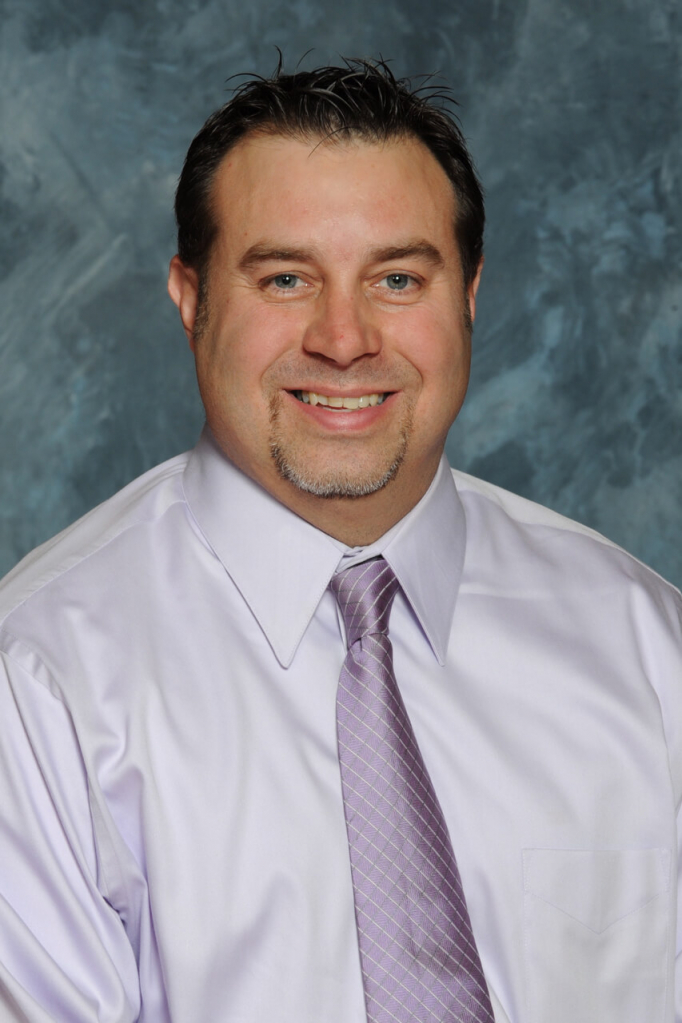Robert Braun helps students, community learn about public health through conversations and new social determinants of health board game
Posted Jan 12, 2021
Reprinted with permission of Westerville Magazine.
By Sarah Robinson
Public health and healthy communities are vital in this day and age, and no one knows this better than Robert Braun. As a professor of public health at Otterbein University, Braun is dedicated not only to his students, but to the community of Westerville and Columbus at large.

In the past year, Braun has worked with Justine Barr, a community health planner for Franklin County, to create a Westerville chapter of Franklin County’s Community Health Action Team (CHAT), a collaborative group of partners working to improve the health and wellbeing of all residents through a partnership with Franklin County Public Health.
“It started out just me and (Justine),” says Braun, “and we started identifying who are some individuals who might want to join our committee to talk about the issues in Westerville, how they impact our residents and what can we do about it.”
Braun and Barr got Westerville involved in January 2020 and have been hard at work ever since. From working with the farmers’ market to having conversations with the schools about mental health and wellness, Westerville CHAT has covered a lot of ground.
“We really want to talk to residents about what they want to learn, what are their interests,” says Braun. “We’re all about empowering our residents and their health.”
On campus, Braun works to educate students about health and healthy communities, too. This fall, Otterbein invited its professors from all fields of study to participate in a lecture series titled COVID Conversations. Braun presented a lecture called COVID and Its Effect on Communities of Color.
“With that, I had my students present on what are the issues and why did this happen,” says Braun. “My presentation, then, was on what are the health departments doing about it right now.”
Involving students in hands-on learning is something Braun is passionate about. Through his collaborations with organizations in Westerville, there are always opportunities to get students involved.
“I’m a firm believer in building your resume and getting your experience,” he says. “One of the things that sets (students apart) is community experience, like working on community programs and running them, and working on community initiatives.”
And we’re not talking about getting coffee or making copies – the students are doing important work. He even has a student currently working with the Westerville CHAT committee to help collect and analyze data.
“I really have phenomenal students,” he says. “It’s really about them gaining the experience, feeling comfortable working with coalitions and working in front of community groups, helping collect data, whatever it is. I always try to make room for a student or two with whatever I’m working on.”
Braun’s vigor for teaching and love for working with the community has combined in one of the biggest projects he’s been a part of. Coming this year is a public health twist on Hasbro’s Game of Life.
Each fall, Braun teaches a health equity course followed by a health disparities conference in the spring. At the conference three years ago, Braun was collaborating with a colleague to tackle the issue of consolidating a 15-week course into a smaller and more accessible way to learn about health equity and disparities in health.
“The game Life is not true to life,” he says. “What is true to life is what I teach in the health equity course, that not everyone has the same opportunity, not everyone has the same advantages. We started thinking, what if we developed a board game that is based off all the topics we talk about and how they affect individuals?”
The rest is history. Braun worked with a number of students to create, troubleshoot and hone the game and gameplay for Our World and Social Determinants of Health.
“We have it on a board, so it’s like a snaking, winding path, kind of like Life, but what we did was we put issues, real issues, that people face,” he says.
Chris Saylor and Mariah Nevels, two of Braun’s former students, have been heavily involved in the game production process.
“Originally, the game was for students in Rob’s class,” says Nevels, “but what we came to realize is that anyone can play the game. It’s not just for clinicians or health professionals. What we pinpoint in the game is removing yourself from your shoes and putting yourself in the shoes of this game character.”
Gameplay involves drawing cards and proceeding across the game board in a way that mimics real life. From Daily Activity Cards and Scenario Cards to Did You Know cards, every aspect of the game relates to data-backed situations and facts relating to the varied social determinants of health.
Players begin the game by rolling a 10-sided die to determine their character’s starting salary, family situation, health care status and more. Each turn, players draw a card that tells them how to proceed down the board according to their unique situation.
The game will be available in 2021, though an official release date has yet to be set.
Beyond the game and his role in the community, Braun leaves a tremendous impact on his students.
“Rob isn’t your stereotypical professor that lectures in front of a PowerPoint and expects you to memorize the material,” says Saylor. “He finds ways to bring in local experts and professionals to talk about the real-world impact.”
“He’s more than just a professor,” adds Nevels.